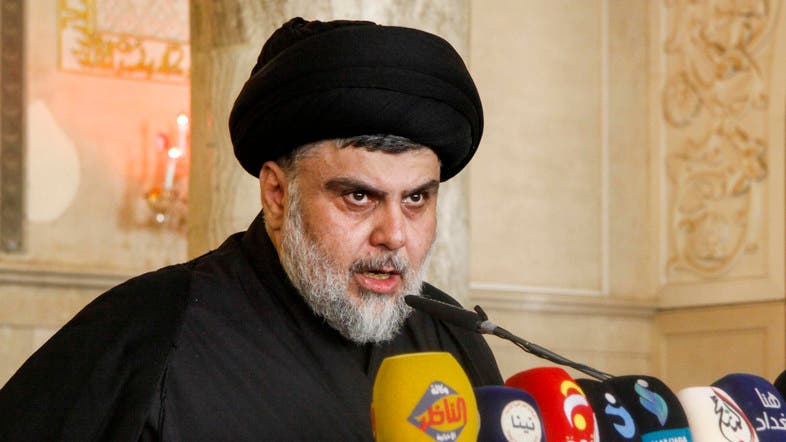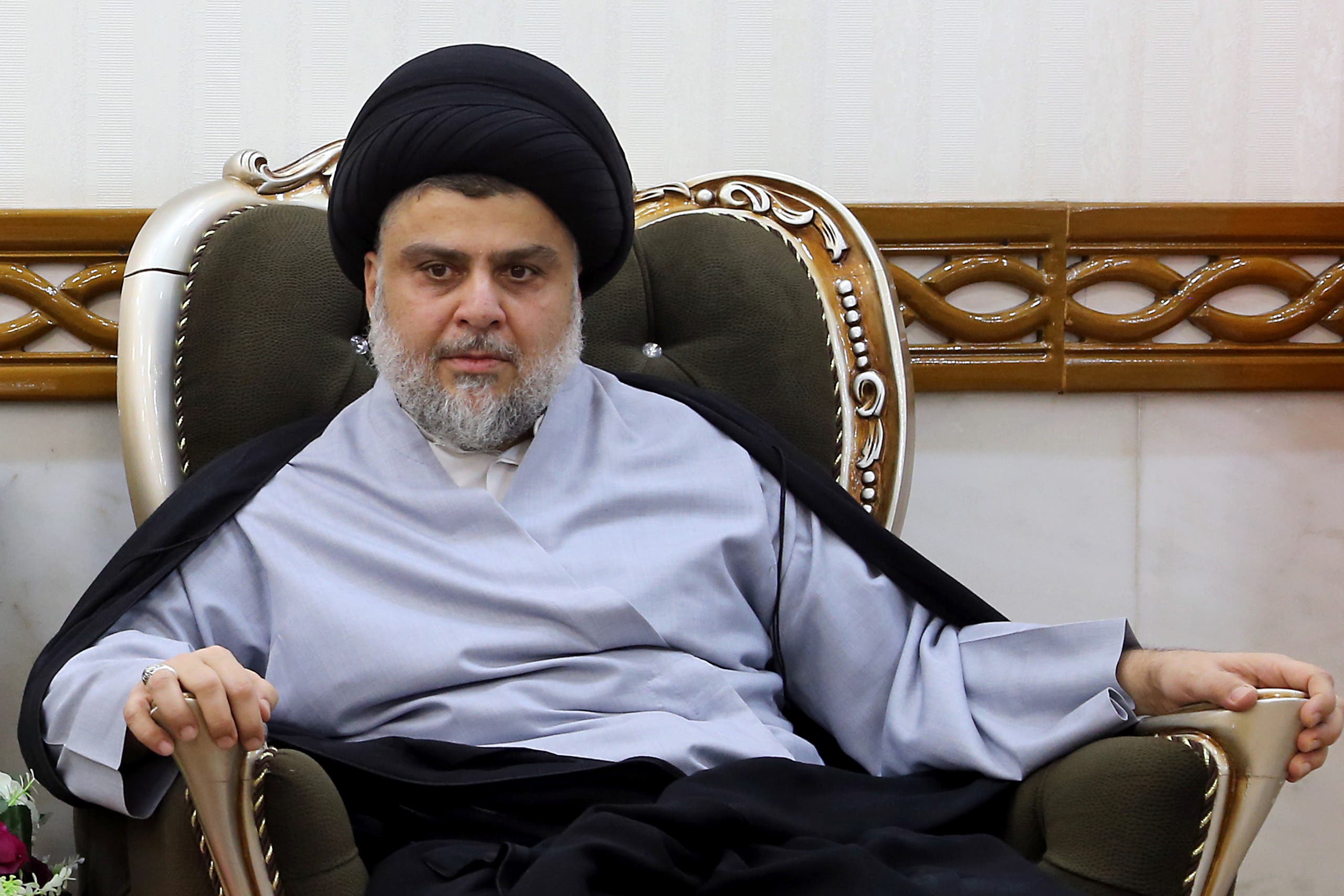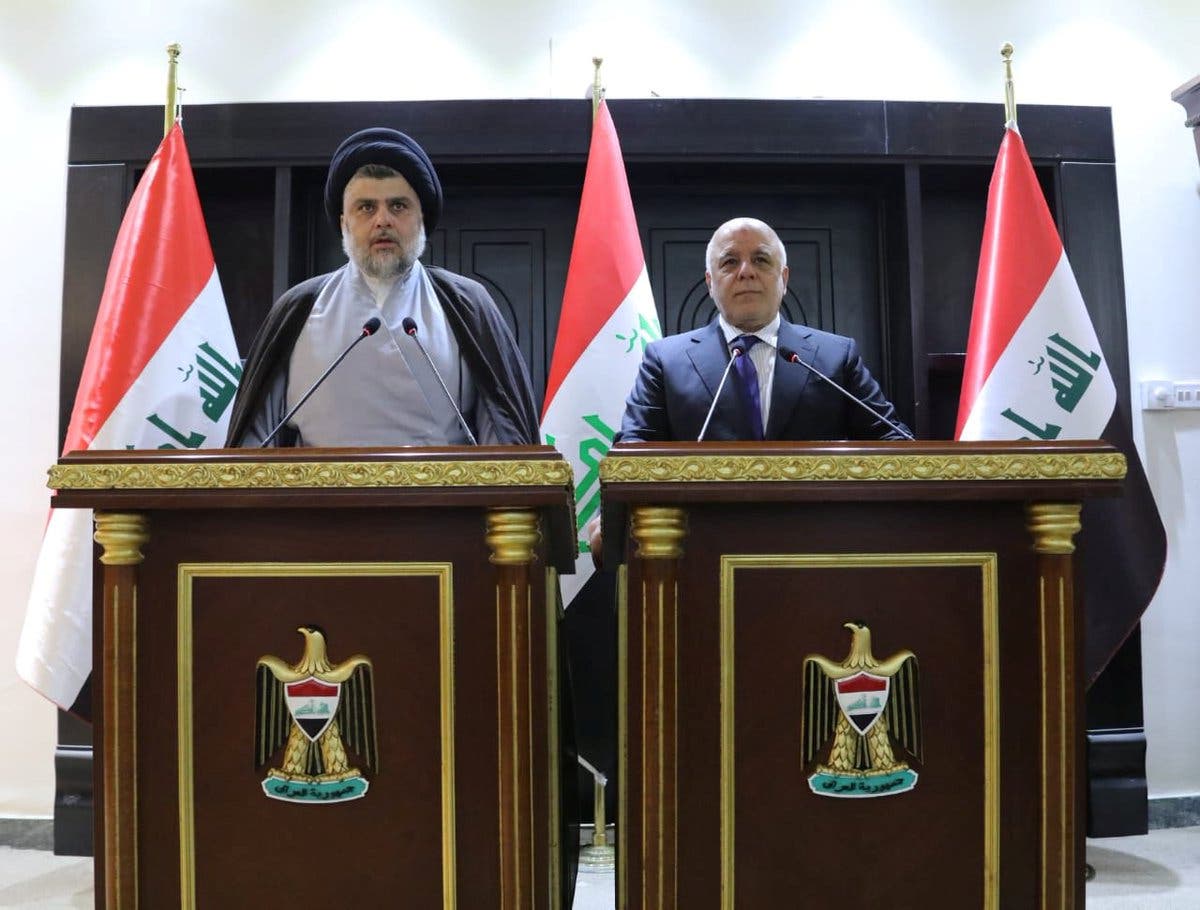Economic and political tensions are rising between Iran and Iraq. One of the major contributors is the
souring of Muqtada al-Sadr’s personal relationship with Iran and, to a lesser extent, Iraq’s cooperation with the sanctions imposed on Iran by the United States this month.
One of the major contributors is the souring of Muqtada al-Sadr’s personal relationship with Iran and, to a lesser extent, Iraq’s cooperation with the sanctions imposed on Iran by the United States this month.
After his surprise victory, the people were hopeful that his pre-election rhetoric would indicate what al-Sadr would actually do now that he was in legitimate power.
Sadly, the first thing al-Sadr did was to combine with the Iranian parties to form a coalition government. Together, these two factions enjoy a coalition that makes-up almost one half of parliament – almost enough to form a government apart from any other help.
Iran has balked and has further signaled to al-Sadr that he had better toe the line. To that end, Tehran has begun to independently fund Ahl al-Haq, the heretofore Sadrist militant arm. Now these militants work directly for Tehran and not al-Sadr.
Signals to Tehran
In response, al-Sadr has started a process of subtle signals to Tehran. Curiously, imports from Iran have been turned back at the Iraqi border crossings across Iraq. Dozens of shipments food stuffs and other comestibles have been rejected by the Iraqi inspectors as “substandard.”
This is unheard of and very new. Perhaps, Al-Sadr knows that the Iranian economy depends on regular and consistent sales to one of its largest trading partners, Iraq.
Further, Iranians have insisted on hard currency from Iraq to pay its light bill. Iraq buys electricity from Iranian power stations to supplement Iraq’s chronic electricity shortage. Unable to pay in dollars because of the US sanctions, Iraq offered its own currency (the dinar) as payment.
Iran refused and is insisting on Euros, at least. This situation is as of yet unresolved largely because al-Sadr may be tweaking the regime into both giving him the independence that he wants and the funding from Tehran he needs at the same time.
Other subtle signs of cracking in the long relationship are showing-up in other ways as well. The new Prime Minister, Adil Abdul-Mahdi, is trying very hard to finish the formulation of his government. The important ministries of Defense and Interior along with six others are still unfilled.
There was to be a vote on Monday on the slate offered by Abdul-Mahdi but it was postponed by leadership. The candidate for the Interior is the former leader of the Public Mobilization Force (PMF). The PMF was the military arm of the successful fight against ISIS in Iraq.
‘Totally independent’
Since those victories, the PMF has been entirely infiltrated by Iranian influence and is currently serving Iran’s needs on the borders rather than Iraq’s. Recent tweets by this leader reflect that he wishes be “totally independent from the government” (that is widely interpreted to mean, ‘serving Tehran instead’).
The PMF figures prominently into the friction. It is the PMF that facilitates this action by its control of the Syrian and Iranian border crossings into and out of Iraq in the North – where Iranian movement of oil, money and other necessities takes place to and from Damascus.
As observed by the State Department in imposing sanctions against Iran earlier this month, “The United States sanctioned an international network by which the Iranian regime and Russia are providing millions of barrels of oil to the Assad regime in exchange for the movement of hundreds of millions of dollars to the Islamic Revolutionary Guard Corps-Qods Force, and for onward transfer to terrorist organizations such as Hamas and Hezballah.”
However, Tehran and al-Sadr have resisted any outward detente, of any sort.
Last Update: Thursday, 29 November 2018 KSA 08:47 - GMT 05:47
 ANALYSIS: Muqtada al-Sadr and rising tensions between Iran and Iraq
ANALYSIS: Muqtada al-Sadr and rising tensions between Iran and Iraq After his surprise victory, the people were hopeful that his pre-election rhetoric would indicate what al-Sadr would actually do now that he was in legitimate power. (AFP)
After his surprise victory, the people were hopeful that his pre-election rhetoric would indicate what al-Sadr would actually do now that he was in legitimate power. (AFP)
 Moqtada al-Sadr (L) during a news conference with Iraqi prime Minister Haider al-Abadi in Baghdad on May 20, 2018. (Iraqi Prime Minister Media Office/Handout via Reuters)
Moqtada al-Sadr (L) during a news conference with Iraqi prime Minister Haider al-Abadi in Baghdad on May 20, 2018. (Iraqi Prime Minister Media Office/Handout via Reuters)
 After his surprise victory, the people were hopeful that his pre-election rhetoric would indicate what al-Sadr would actually do now that he was in legitimate power. (AFP)
After his surprise victory, the people were hopeful that his pre-election rhetoric would indicate what al-Sadr would actually do now that he was in legitimate power. (AFP) Moqtada al-Sadr (L) during a news conference with Iraqi prime Minister Haider al-Abadi in Baghdad on May 20, 2018. (Iraqi Prime Minister Media Office/Handout via Reuters)
Moqtada al-Sadr (L) during a news conference with Iraqi prime Minister Haider al-Abadi in Baghdad on May 20, 2018. (Iraqi Prime Minister Media Office/Handout via Reuters)
No comments:
Post a Comment